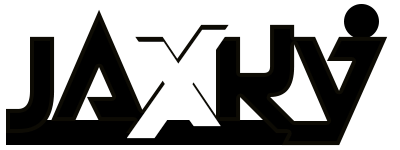No products in the cart.
In an age where our lives are scattered across a dozen devices, from phones to laptops to tablets, a silent threat looms: the potential loss of our most cherished digital memories and important documents. We rely on fragmented external hard drives and a patchwork of third-party cloud services, but what if there was a better way? A way to centralize your entire digital life, make it accessible from anywhere, and keep it safe from prying eyes and hardware failure. That solution is a NAS, or Network-Attached Storage, and it might just be the best investment you make for your digital future.
What Exactly Is a NAS?
Think of a NAS as your own private, personal cloud. It’s a small, dedicated computer that connects to your home or office network and is designed for one purpose: to store and serve files. Unlike an external hard drive that only works when plugged into a single computer, a NAS is always on and connected, making your data available to any device on your network and, with proper setup, to you from anywhere in the world.
Why It’s the Cloud You Can Trust
The primary reason to invest in a NAS is control. When you use a commercial cloud service like Google Drive or iCloud, you are entrusting your data to a corporation. With a NAS, you own the hardware, you control the data, and you are the only one with the keys to the kingdom.
The benefits are game-changing:
- Ultimate Data Security: A NAS typically uses multiple hard drives in a RAID (Redundant Array of Independent Disks) configuration. This means your data is automatically mirrored onto a second drive, so if one drive fails, you don’t lose a single photo or document.
- Centralized Storage: Tired of searching for a file on your laptop, then checking your desktop, then your tablet? A NAS acts as a single, central hub for all your data, ending the chaos of digital clutter.
- Media Server Powerhouse: A NAS can effortlessly stream your entire library of movies, TV shows, and music to any smart TV or mobile device in your home. It’s the ultimate personal media server, giving you instant access to your entertainment.
- No Recurring Fees: Unlike subscriptions that charge you monthly for storage, a NAS is a one-time investment. You buy the hardware once, and the storage is yours to use for as long as you own it.
The Cost: A Look at the Investment
The price of a NAS can vary, but it’s important to think of it as two separate costs: the enclosure and the hard drives.
- The Enclosure (the NAS itself): For a solid entry-level model from a reputable brand like Synology or QNAP, you can expect to pay between $150 and $300. These are typically 2-bay models, meaning they hold two hard drives.
- The Hard Drives: This is a separate and significant cost. A good quality, high-capacity hard drive (e.g., 4TB to 8TB) can range from $80 to $200 per drive. You will need at least two drives to take advantage of the data redundancy benefits.
A solid, reliable entry-level system with two drives will likely cost you anywhere from $350 to $600. While it may seem like a high initial cost, it pales in comparison to the long-term fees of cloud subscriptions and the invaluable peace of mind you get from knowing your data is safe and in your control.
Advantages and Disadvantages
Like any technology, a NAS has its pros and cons.
| Advantages | Disadvantages |
| Complete Data Control (No third-party access) | High Initial Cost (Compared to cloud fees) |
| No Recurring Fees (One-time investment) | Requires Initial Setup (Not plug-and-play) |
| Faster Local Speeds (No internet bottleneck) | Risk of Hardware Failure (Mitigated by RAID) |
| Scalability (Add more storage as you need it) | Physical Security (Must be stored securely) |
Exportar a Hojas de cálculo
In conclusion, a NAS is more than just a storage device; it is a declaration of digital independence. It offers the speed and convenience of a cloud service with the security and control that only you can provide. While the initial investment may seem high, the long-term savings and the peace of mind are priceless, making a NAS one of the smartest and most popular choices for anyone serious about protecting their digital life.







